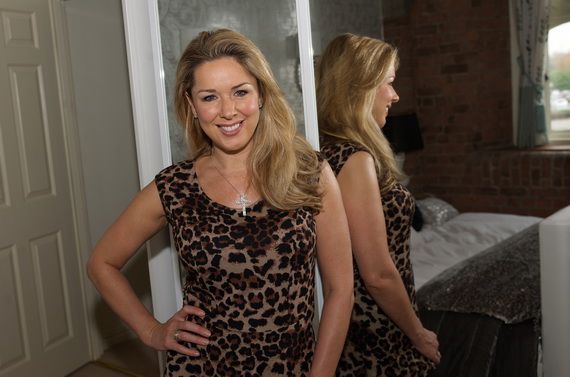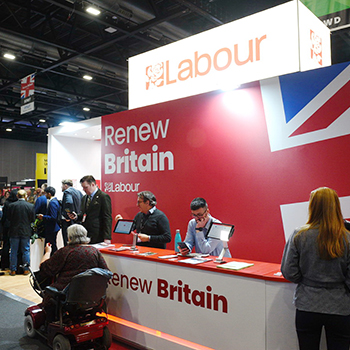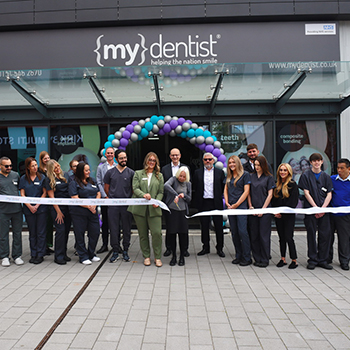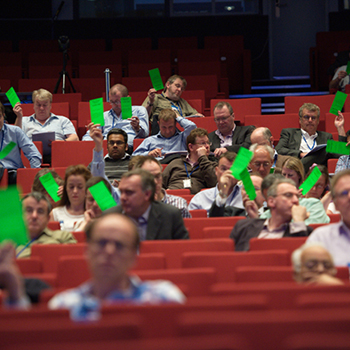7 Tips for Hiring a Conference Photographer
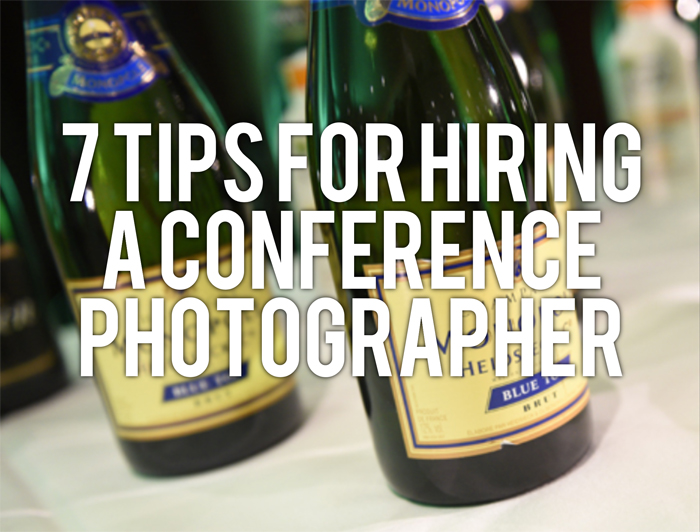
Published on Tue Sep 12, 2023 by David J Colbran
I am a Merseyside conference photographer offering high quality event photography for all sizes of events and conferences across Liverpool, Merseyside and the North-West. So of course, my first tip is to hire me. But if I'm unavailable, or a bit too far away, hopefully this list of tips and suggestions will help you choose the right person to cover your event.
Using my many years of experience as a pro photographer in Liverpool, I have made this list of 7 tips to get the best out of your conference photographer.
1. Writing a strong brief
Seems obvious but a lot of conference organisers are super busy people and this can slip down their lists. Taking the time to do this well in advance and talk it through with the photographer pays dividends when it comes to end results. Go over your expectations and requirements and note them all down. A sensible starting point is explaining the audience of the conference - don't assume the photographer will know your organisation or business sector. Explain if the images are to be sent to trade press, used on the web, or perhaps to local press. All require slightly different approaches. Check my blog post - Top 6 Tips on Writing a Killer Brief for Photographers

2. Include a schedule and must have shot list
At the earliest time in the planning process, build in to the brief a schedule. Make sure you include the timings for speakers, any opportunities for group shots, award ceremonies, seminars, workshops and any other random things that are being planned throughout the event. Think of future events - for example for a large exhibition it might be useful for some images of the stand set-up phase, access routes for vehicles, parking facilities and take-down activities. Don't forget branding and any props you are using at the event - they might be obvious to you, but get them on the shot list. All these things really help the photographer plan which kit they will bring along. Two examples - if you need a really large group shot of staff - the photographer will want to bring a ladder and a super wide angle lens. A second situation is if you need image rushes for social media on site - again most photographers will have laptops, make sure they bring them along and they have the time to edit and get the images to you.

3. Think about any health and safety issues
Pretty dull I know but essential to create a professional and safe workplace for sub-contractors. For example is the photographer familiar with the venue - stage heights, working restrictions, fire evacuation procedures? Does the photographer have adequate public liability insurance, just in case something goes wrong? Is the workspace clear and free from trip hazards? Do they need to be a part of any risk assessment exercise? Does the photographer have Health and Safety policies themselves? The best will - just remember to ask to see it before the event as they are unlikely to have them in their kit bag! Also highlight to them any emergency plans you have in place.

4. Letting everyone know that there will be a photographer at the event
In the days of GDPR I think it makes sense to ensure that the participants know a pro photograph will be covering the event. Having this as part of the registration process seems the best way to me and also having a few signs in the venue is sensible. Those individuals that don't want to be photographed are usually pretty good at avoiding group shots - but think of ideas like badges or stickers etc. to help a photographer with the more informal networking shots or general view crowd shots. Letting the venue management know is always good practice as well. Another idea is to let speakers have any shots of themselves shortly after they talk - a lot of people will publish them on their social networks and it's a great bit of extra promotion for very little extra work.
5. The stage, rooms and speakers
Early in the planning stage, consider the speakers and presentations from a photographers point of view. If a lectern is to be used, make sure branding is audience facing, to ensure coverage in close up photographs. Also think of the position of the speaker - off to one side usually works well - avoiding any screen projection casts on the person[s face. This also helps if you only need your photographer near the front for a short period of time - they can easily move in and out of position, without too much distraction. A centrally located lectern makes photographer movement a little more noticeable. In spaces without a stage, consider access routes down the side of seats and at the rear of rooms - this will enable photographers to be unobtrusive and get a variety of images from different angles. Finally factor in time and a location for off stage portraits - you may need more formal, posed images of your speakers.


6. Celebrities and VIPs
Any opportunity to photograph them with your company logo or even representatives from the company is great - but without helping the photographer ID them, they are likely to be missed. While it isn't necessary to have a member of the marketing team constantly with the photographer, there will be times it will be useful. Conferences are all about building bridges between businesses, so documenting the conversations and networking going on within the room is a bonus.


7. Delivery of images
Agree in advance when and how the images are to be delivered. I use online methods post event, which can be accessed and shared with multiple people - I can create separate folders - so plan out who needs what and the photographer can help with this. For example a PR folder that you can send to trade press editors, and then another folder for your design people, so they can add them to you image archive for advertising future events. Of course, it is always worth double-checking that whatever method you use, it can get through your organisation's firewall. I still have a couple of regular clients that prefer images on old school CDRs! Agree a delivery time - most photographers supply images within 48 hours - I usually complete much quicker - for multi day events I try and edit images each evening. For image rushes on location - i.e. for social media - bring some USB pens and have a laptop with all your social media logins near to hand - always easier than trying to do everything on your phone.
Final tip - Hire a Professional
Obviously as a pro photographer I'm going to say that - but if you've got this far I'd like to ram home the point. Conference photography is a specialist field. The experts will have dozens of events under their belt, know the venue inside out and the skills to match images and output to your range of brand style requirements. Some businesses will use that member of staff who is keen to help, with a half decent camera. But trust me, you've only got one chance to document the event and if you are spending big on a conference and trying to influence others across your sector, why leave it to chance on the quality stakes. If you've blown the budget on venue and lunches, one option is to prioritise down to just a few hours, rather than the whole day - perhaps the keynote speakers and morning networking sessions, or a workshop activity that you know will be visually interesting. Having professional images of this years conference, will make it easier to secure budgets and market for future events - out of focus smartphone shots by the office junior will be not so effective !
I am regularly commissioned to cover conferences, business awards, corporate events, evening galas and cultural celebrations for individual companies and media organisations. I can offer discounts for multi-day events and absolutely no problem chatting over your requirements - give me a call on 07810321634 and I'll get back to you with some options and prices.







Author: David J Colbran
- < Previous news post
- Photography for the Outdoor Advertising Industry Liverpool based Next news post >
- Photographer for Labour Party conference in Liverpool 2023
Labour Party Conference 2025 - photographers case-study
Lots of images from three busy days working at the ACC and Exhibition centre Liverpool for the Labour Party conference 2025
Behind The Scenes case study photo shoot at a Dental Surgery Launch
There is something uniquely rewarding about photographing people in spaces where they feel confident, professional, and proud. That’s exactly the atmosphere I stepped into during a recent commission at a newly opened dental surgery — a sleek, modern practice blending cutting-edge care with a warm, welcoming environment..
Liverpool Photographer available for Labour Party Annual Conference 2025
Wow 12 months roll around quickly. It doesn't seem 5 minutes ago that I was dashing between fringe events and public relations photo shoots. But here we again in the run up to another Labour Party Conference in Liverpool in 2025.
Jane Kerr, Communications specialist.
